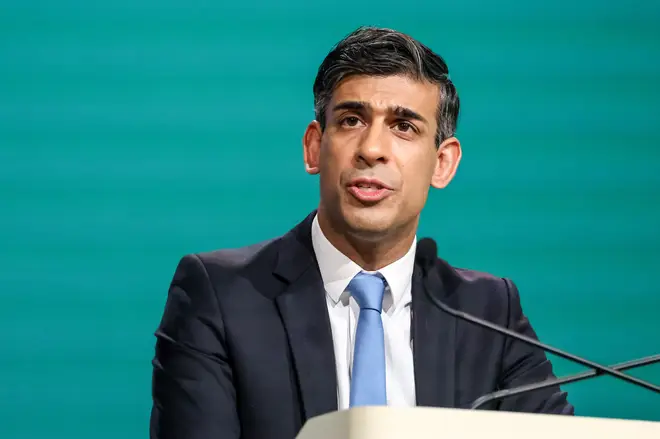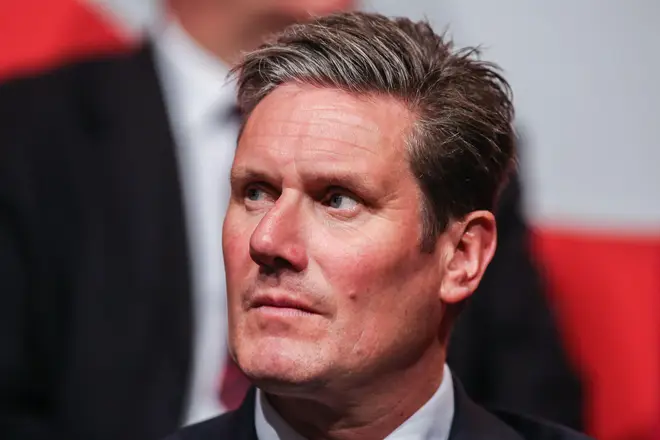
Rachel Johnson 6pm - 9pm
3 December 2023, 23:53 | Updated: 4 December 2023, 00:06

Rishi Sunak and Keir Starmer have both failed to commit to the pensions triple lock as opposition to the long-held policy grows.
The Prime Minister stressed that his Government has consistently supported pensioners, but was evasive about the future of the policy, which sets the size of increases in publicly-funded pensions.
It comes after a global economic watchdog urged the UK to reform the "costly" triple lock to free up more money and boost growth as borrowing costs remain high.
Read More: Obesity epidemic costs Britain nearly £100bn and will scupper back-to-work push for Sunak
The triple lock, which has become a hallmark of recent Conservative governments, refers to the commitment to raise the state pension every year by wage growth, inflation or 2.5% - whichever is highest.

But the Organisation for Economic Co-operation and Development (OECD) last week recommended that pensions should instead be pegged to an average of inflation and wage growth to help reduce state spending over time.
Mr Sunak refused to "start writing the manifesto" when asked whether the triple lock will form part of the Tories' plan going into the next general election, expected next year.
He told reporters: "We are the Government that has introduced the triple lock and delivered the triple lock and it is why, right now, pensions are, depending on how you look at it, £800 or £900 bigger than they otherwise would have been."

He pointed to Chancellor Jeremy Hunt's confirmation in his autumn statement that the triple-lock formula would be implemented as usual, meaning the state pension will rise by 8.5% in line with average earnings from next April, worth up to £900 more a year.
Mr Sunak continued: "There was some scepticism that that might not happen but again it is just a signal of our commitment to look after our pensioners who have put a lot into our country, we owe them a lot and under this Government we have consistently shown we will support them and back them."
Around 12 million pensioners would be affected by any potential changes to the triple lock.
Sir Keir, who polls suggest is on track to snatch the keys to No 10 at the next election, also declined to set out his plans at this stage.
The Labour leader told journalists: "This Government made the commitment on the triple lock and it's for this Government to keep to its commitment.
"We will set out our position as we get to the election, there is obviously at least one more fiscal event to be had yet, but we will set that out fully before we get to the election."
Mr Hunt began to ease the historically high tax burden in last month's highly-political autumn statement, claiming the UK economy had turned a corner.
A cut in national insurance will be rushed through Parliament to take effect in January to boost Mr Sunak's chances at the ballot box.
The swift timeline for the cut and the scale of the Chancellor's fiscal package fuelled speculation the election could be called in the spring.
The Prime Minister shut down questioning on the topic, saying he would not "get into election timing now, alongside the manifesto or the next Budget".